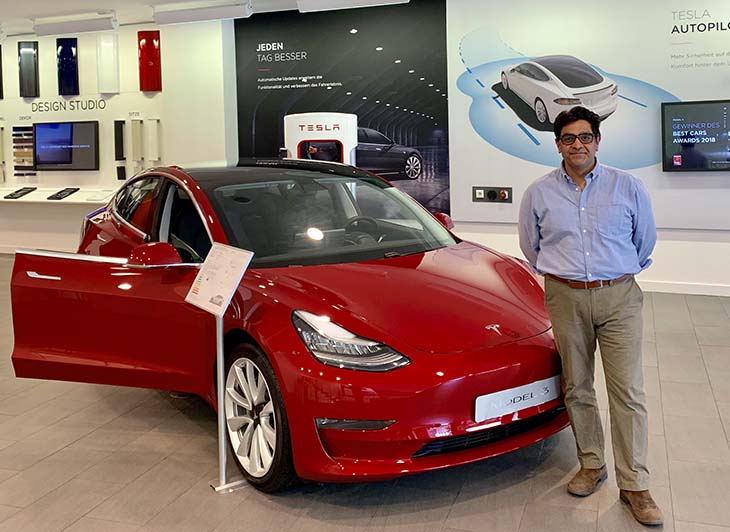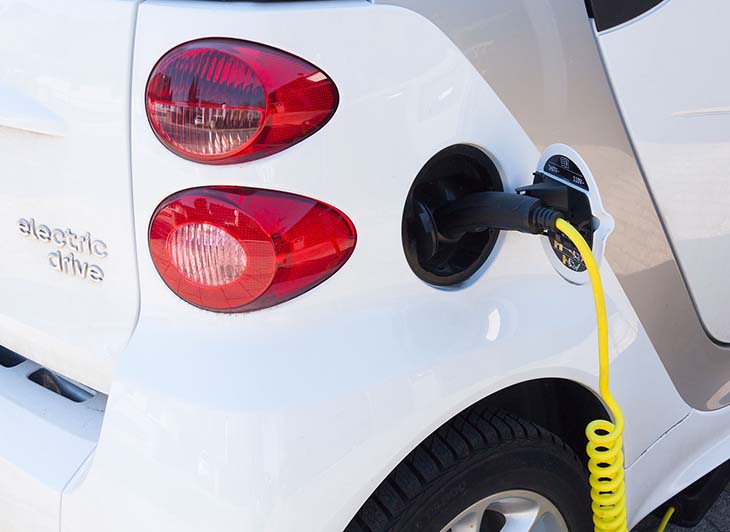
Author - Ashvin Suri, Founder of E-Zoomed, a Creditplus partner: Ashvin has been involved with the renewables, energy efficiency and infrastructure sectors since 2006. He is passionate about the transition to a low-carbon economy and electric transportation. Prior to that he was an investment banker with JPMorgan. He was awarded an MBA from the London Business School in 1998.
What Is The Difference Between A PHEV And A BEV?
Aspiring owners of ultra-low emission vehicles (ULEVs) often seek clarity on this fundamental question as they contemplate the transition from traditional internal combustion engines to EVs.
Battery Electric Vehicles (BEVs):
These EVs are also referred to as ‘pure electric vehicles’ or ‘all-electric vehicles’. A BEV is any EV that runs only on rechargeable EV batteries. A BEV will not have any other type of power source/drivetrain i.e. like an internal combustion engine.
BEVs are recharged via dedicated external power sources at home, the workplace or at public charging points. A BEV has zero tailpipe emissions. The all-electric Jaguar I-PACE is an example of a BEV.
Plug-in Hybrid Electric Vehicles (PHEVs):
It is another type of an EV, except it has dual fuel sources i.e. a rechargeable EV battery and an internal combustion engine (ICE). Yes, it has both drivetrains in the vehicle. With a PHEV you need to fill the fuel tank and also recharge the onboard EV batteries.
The on-board batteries are recharged in a similar manner to a BEV i.e. a dedicated external power source. A PHEV does have tailpipe emissions but is significantly lower emissions than traditional petrol or diesel cars and a PHEV is capable of driving a certain number of miles emission-free. The Mini Countryman Cooper PHEV is an example.
Please do not confuse a PHEV with a conventional or traditional hybrid vehicle, like a Toyota Prius Hybrid. In conventional hybrid vehicles, the on-board battery is not charged by an external source i.e. there is no ‘plug-in’. In such hybrids, the on board battery is charged via regenerative braking.
Which Is Better: A Plug-In Hybrid or Battery Electric Vehicle?
The short answer is a BEV. I strongly encourage all potential drivers of polluting internal combustion engines (ICE) seeking a transition to lower emission electric vehicles, to always take the step from ICE directly to a BEV.
I do not discourage individuals from buying a PHEV, but as you will note from the salient points below, a BEV is the better choice for most driver needs. So that I have made myself absolutely clear, remaining in a polluting traditional petrol and diesel car is the worst option. The time has come for us all to migrate to electrified road transportation and the EV industry has come of age.
How Do I Assess Which Type of EV Is Right For Me?
In most cases, a battery electric vehicle comfortably meets the needs of an aspiring EV owner. In fact, a number of these ‘EV converts’ usually commence their assessment of EVs with a bias that an all-electric or pure electric vehicle will not meet their needs. It is only after a more studied and rational assessment process, do these potential buyers realise that a BEV, is in fact, the most appropriate choice.
I suggest sitting down over a nice cup of tea and mull over the following questions...
• Am I seeking to replace my primary or secondary car?
• For what do I most use my car? (commuting, school runs, leisure etc.)
• What is the average distance per trip?
• How many miles do I drive per year?
• Do I have access to a private garage?
• Are there public charging points near my home?
• Does my workplace have any charging points?
• For longer trips, have I come across highway EV public charging points?

Ashvin Suri With A Tesla Model 3
It is interesting to note the statistics of the ‘average’ UK driver:
• The average distance per trip is a mere 12 miles
• The average miles driven in a year is 8,000 miles
• The majority of vehicle owners have access to private parking or garage
• EVs are fast becoming a popular choice for local commutes like the school run and also weekend trips
• Increasingly, many have access to workplace charging
• Public charging infrastructure is becoming more prevalent
Range Anxiety And EV Range
It turns out, that most of us travel much shorter distances on a regular basis. In fact, most new EVs across the spectrum of performance, from a Nissan Leaf to a Tesla Model 3, have a WLTP range above 200 miles on a full charge, and in some cases over 300 miles.
Even taking into account ‘real world’ range, achieving over 150 miles on a single charge is very much the norm than the exception. Most everyday commutes for leisure and work are very much within this distance, hence a BEV will easily meet the need!
However, if you’re travelling more than 250 miles on a very regular basis, then a plug-in hybrid vehicle, like a Hyundai IONIQ PHEV maybe more appropriate. PHEVs are capable of travelling significant distances on a full tank and full battery charge. The IONIQ can travel more than 660 miles.
So, Should I Buy A PHEV Instead Of A BEV?
The answer is yes if you...
• Travel more than 250 miles on a regular basis
• Have limited access to EV charging infrastructure to include charging in your home, workplace or public network
Advantages Of A BEV Compared To A PHEV?
• Lower maintenance costs: a BEV has only one type of drivetrain, while a PHEV has two types
• Zero-emissions: PHEVs provide emission-free travel, but for limited miles. BEVs only travel emission-free
• Lower cost of recharging an EV compared to filling a tank of fuel (petrol or diesel): Charging an EV will cost anywhere be £4 to £11, depending on your tariff. But filling a full tank of fuel could set you back up to £80!
• PiCG grant for BEVs and none for PHEVs: take advantage of the £3,500 government incentive!
Should I Consider A Conventional Hybrid?
Yes. Only if neither a BEV or PHEV is not appropriate for your requirements. To be honest, I find it hard to imagine the circumstances in which neither a BEV or PHEV does not meet the most demanding of needs. I cannot think of any! Can you?
Or Should I Consider Traditional Petrol Or Diesel Car?
I suspect you have already guessed my answer. An unequivocal and resounding ‘No’! You may delay your migration to lower emission vehicles, but the inevitable transition to EVs cannot be avoided. As highlighted above, there are already a number of very valid and robust reasons to support the case of EVs. But above all, if you truly care for your family, future generations and value our only home called ‘earth’, you will proudly make the choice to driving lower emission cars in the very immediate term. That is the bottom-line!




 Facebook
Facebook Twitter
Twitter Instagram
Instagram LinkedIn
LinkedIn Youtube
Youtube